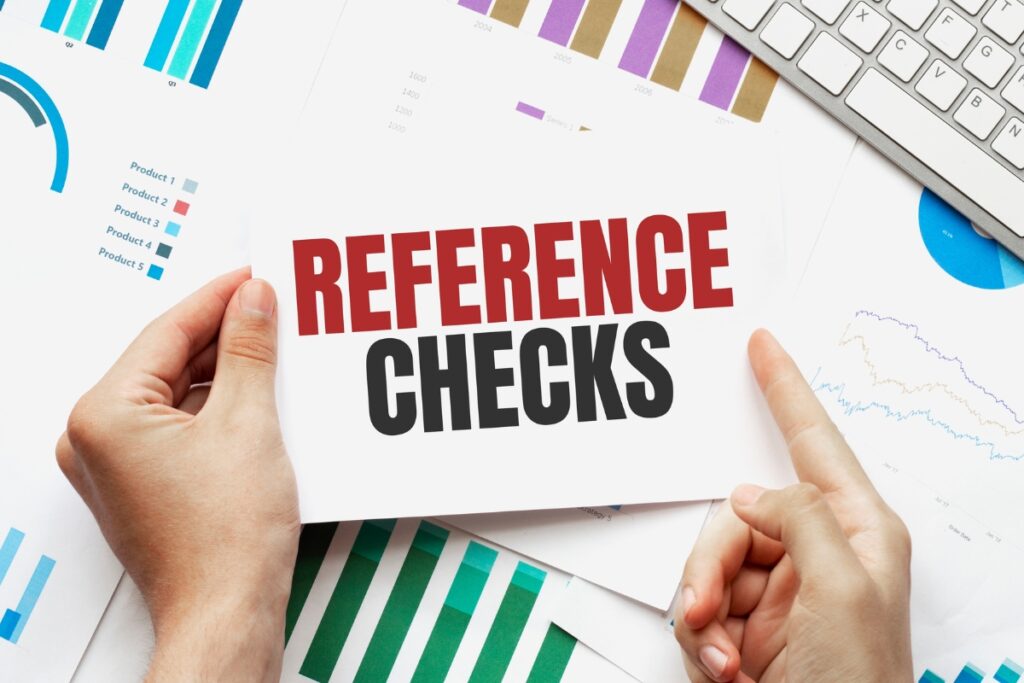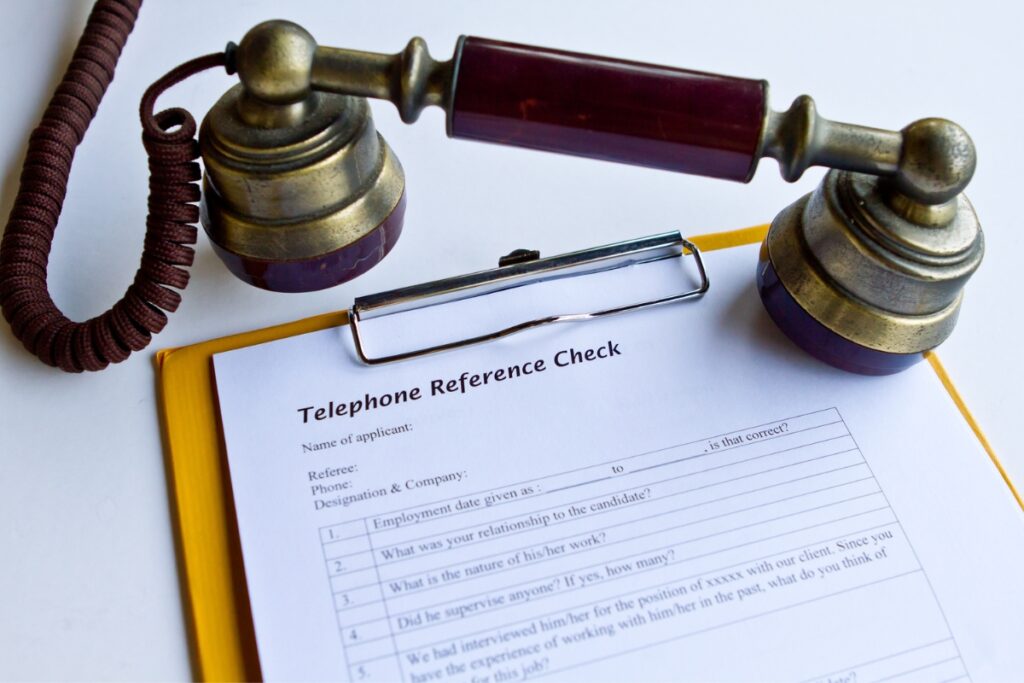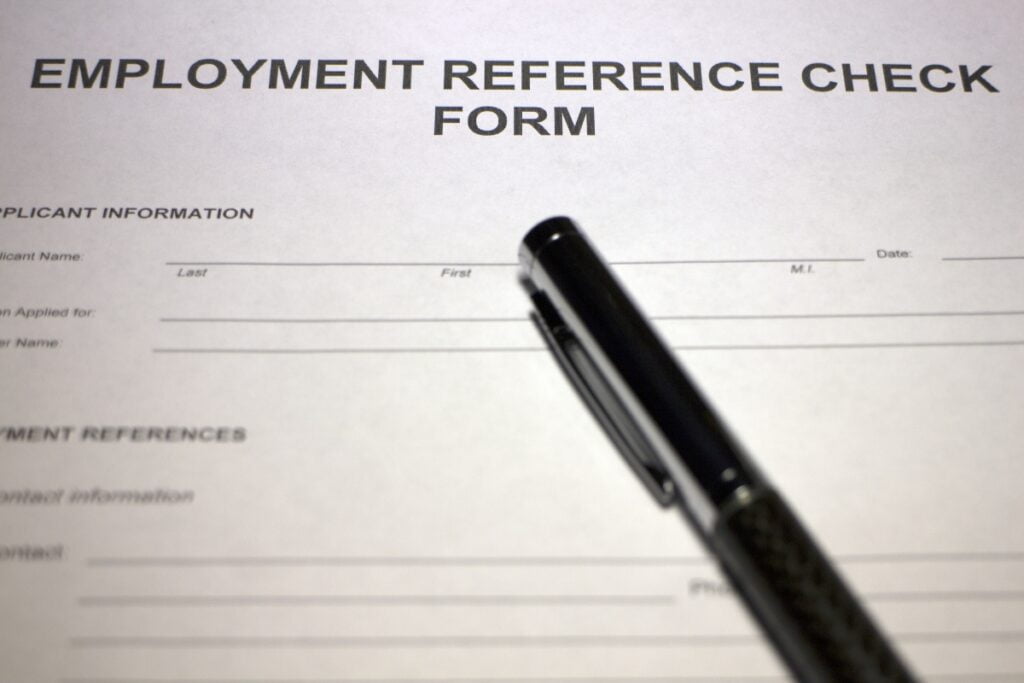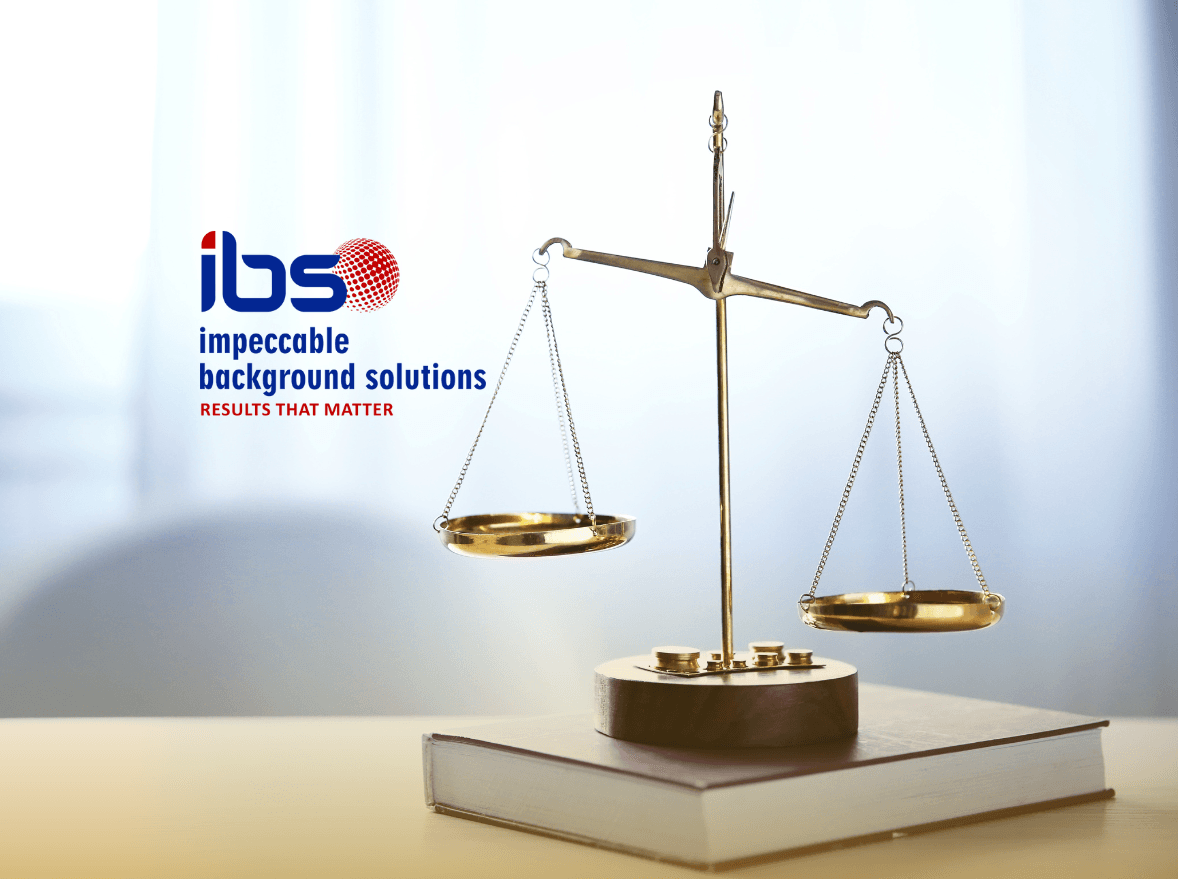Hiring new employees is essential for long-term success in any business, and the process of background screening applicants can help to ensure a more informed decision is made. Every employer understands the importance of making a sound hiring decision when bringing on new talent.
After all, the wrong candidate can cost your business time and money, and in the worst cases, even put your reputation at risk. That’s why so many organizations are turning to background checks as part of the pre-employment process – there’s simply no better way to verify an applicant’s claims or to uncover potential red flags.
In this blog post, we’ll explore the many benefits of verifying an applicant’s references, helping you to understand why you should never skip this important step in your background screening.
Why Reference Checks Matter

When it comes to uncovering the fullness of a candidate’s background during the pre-employment screening process, reference checks are an essential step. When done correctly, reference checks can give valuable insight into a candidate’s experience, skills, and character. In fact, reference checks are one of the most important elements of the hiring process.
Whether you’re a busy hiring manager, HR professional, or part of a recruiting team, it’s important to understand why reference checks are so important and why they should be included in your pre-employment screening process.
The most obvious benefit of conducting reference checks is that it provides employers with more information on a candidate’s employability. Reference checks are designed to provide employers with information that may not have been provided on a resume or during an interview.
Details such as a candidate’s job performance, reliability, and work habits are things employers can learn from reference checks. This additional information can be a great help in making an informed hiring decision.
Another benefit of reference checks is that they can provide employers with real-time feedback. When employers conduct reference checks, they can get a better idea of how a candidate might work in the role they are applying for, in the specific working environment, and with the team they would be working with. With this type of feedback, employers can make more informed decisions about whether or not a candidate is a good fit for the organization.
Reference checks can also help employers to determine the accuracy of a candidate’s claims. While resumes and interviews are both good sources of information, they may not always tell the full story.
By speaking to references, employers can get a better sense of a candidate’s professional experience and overall qualifications. This can help employers get a better understanding of the candidate, and can also help to verify any information that has been provided by the candidate.
Finally, references can also provide employers with insights into a candidate’s character and work ethic. By speaking to references, employers can get a better sense of how the candidate interacts in a professional setting and how they handle certain work situations. References can also provide employers with additional information on a candidate’s career aspirations and goals.
How Reference Checks are Conducted

Reference checks are a vital part of the background screening process when hiring new employees. It can help employers get an idea of the candidate’s past performance, work ethic, and overall job fit. As such, conducting reference checks is an important process that needs to be done properly. Here is a look at how reference checks are conducted and the benefits they offer.
When it comes to reference checks, the employer should first request permission from the candidate to use the reference. It is advised to provide the candidate with a list of references the employer would like to contact and get authorization from the candidate that it is acceptable to contact those individuals.
When it comes to the actual reference checks, it is important to ensure the questions asked are relevant to the position and not overly personal.
The questions should focus on the candidate’s job performance, work ethic, and attitude. Employers should also make sure to ask detailed questions that allow the reference to provide a thorough response.
Ways Reference Checks Supplement Background Checks

Background checks and reference checks are two essential steps in the screening process for employers, as they offer insight into the character and qualifications of a job candidate. Reference checks supplement background checks in a number of ways, giving employers a more comprehensive assessment of the individual under consideration.
Reference checks are often overlooked in favor of more intensive background screenings, but they provide a valuable addition to the overall assessment. By speaking directly with the candidate’s past employers, colleagues, and/or personal references, employers can gain a more holistic understanding of the candidate’s character, work ethic, strengths, and weaknesses. This information can complement the more objective data provided during a background check, such as a criminal history or education verification.
Reference checks also offer employers a chance to gain insight into the candidate’s work history that may not be apparent from a background screening. For example, a background check will tell you if a candidate is qualified for a certain role, but a reference check can reveal the candidate’s level of success in previous roles. This can be critical in determining if the candidate is the right fit for the job.
Additionally, reference checks can tell employers if the candidate is a good cultural fit for the organization, and if they will be a good team player. This is important, as hiring the wrong candidate can be costly for the organization and have a negative impact on employee morale.
Finally, reference checks can provide employers with evidence of the candidate’s commitment to their work and professional development. Employers can gain insight into the candidate’s willingness to learn and grow, as well as their ability to collaborate with team members and manage projects.
How to Make Sure Your Reference Checks Are Effective

Reference checks can be a valuable part of the comprehensive background screening process. They provide employers with an understanding of a candidate’s past job performance and behavior, and can help them make more informed hiring decisions. However, it’s important to make sure your organization’s reference checks are comprehensive and effective. Here are a few key points to keep in mind when conducting reference checks.
First, it’s essential to know who to contact for references. Asking the right questions can be a great way to get useful information about a candidate. It’s best practice to contact a variety of references, including past employers, colleagues, and supervisors. Also, try to contact references from different roles and industries to gain a more comprehensive understanding of the candidate’s background.
It’s also important to ask the right questions when conducting reference checks. Create a list of questions that are relevant to the open position and focus on relevant skills and experience. Try to avoid leading questions and focus on open-ended ones. This will help you gain a better understanding of the candidate’s work style and capabilities. Additionally, make sure to ask questions about any red flags that may have come up during the background screening process.
Finally, be sure to document all reference checks. Make sure to keep records of who you’ve contacted and what information they provided. Documenting reference checks can help ensure that your organization is meeting its legal obligations and making the right hiring decisions.
Conclusion
Overall, reference checks are an important part of the background screening process. By speaking with an applicant’s former employers and colleagues, employers can gain a better understanding of the applicant’s qualifications and potential red flags.
Additionally, employers can verify any information provided in the application or resume, gain insight into the applicant’s strengths and weaknesses, and protect themselves from any potential legal issues. By making reference checks a part of the background screening process, employers can ensure they hire the right candidate and make the best decision for their organization.
When it comes to seamless and trustworthy background checks for your organization, turn to the experts at Impeccable Background Solutions! Our range of professional services is designed to make your experience a smooth and reliable one.
We take pride in providing comprehensive background screening services that assist businesses and organizations in discovering the ideal candidates who align perfectly with their unique requirements.
Have questions or want to dive deeper into what we offer? Feel free to connect with us through our website’s contact form or give us a ring at 404-796-8419. Opting for Impeccable Background Solutions is a wise decision; we’re here to guide you every step of the way! Let us be part of your journey.





